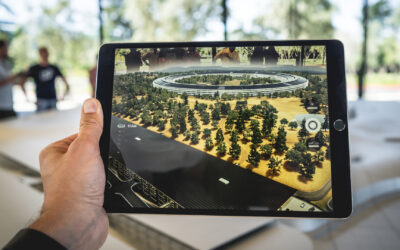Art and design outcomes are visual, layered, textured, tactile, and dimensional. Teaching and learning for the majority of CCS’s disciplines is hands-on and face-to-face, including CCS’s renowned Transportation Design program.
But in 2020, COVID hit.
We sent our students home mid-semester, a directive that nearly every college, university, institution and industry worldwide instituted to keep people safe. Our students had to continue their work without access to College for Creative Studies’ (CCS) world-class art-and-design-supporting facilities.
CCS students innovated and pivoted to express their creativity. Over Zoom, we saw how studios popped up in kitchens, bedrooms, basements, garages, bathtubs, backyards and cars. This type of resilience and creativity by our students led to changes in our curriculum as we learned what we could do under challenging conditions.
Each semester, CCS classrooms host over a dozen educational partnerships with companies and nonprofit organizations to provide students with real-world experience in which the students address a design problem outlined in the company’s design brief to the class. These opportunities connect students with industry professionals, expose them to potential internship opportunities, and provide the sponsoring company with an introduction to emerging talent as they work with the students in the classroom.
In Winter 2020, one of these projects was Ford Motor Company’s Mustang 2030. The Ford project challenged the students to come up with ideas and designs for what the Ford Mustang might look like in 2030 and beyond. The Mach-E was just announced; now all designs had to be electric.
Suspending in-person activity meant the Transportation Design students would not have access to CCS’s Jennifer and David T. Fischer Studio to make their 3D clay models for final presentation to Ford executives. The models were to be a major portion of their final grade, not to mention the potential of future employment. The model represents the culmination of their design work, of hundreds of ideations, sketches, and a refined design “voice” from hundreds of hours of work uniquely expressed in their 3D model. Now, with the studios closed, the students would not be able to produce a 3D model. Final projects still needed to be constructed but would have to be created and presented virtually.
Frustrated and at home, these Transportation Design students refused to settle for mediocre outcomes. Focused on the goal to ace their final project and make their presentation as professional as possible, the students set out to make their drawings come alive. To achieve this, they learned Epic Games’ Unreal Engine, a game development software. This is the same software that is used to create computer games like Fortnite and many others. Fellow students in CCS’s Game Design program were already very familiar with the software and were helpful to their Transportation Design colleagues.
Sketching with paper and pencil continues to be used and encouraged in the automotive industry. Digital renderings were then—and are today—a major part of the design process for many automakers. Automakers, however, still want the physical 3D models of clay and Dynoc, a film covering to make the models look very real and beautiful. The analog models provide a more realistic, nuanced sense of curves and lines that make for great designs.
With COVID conditions and remote work continuing through the end of the semester, students presented their designs to the Ford Designers through Zoom. The all-electric designs ranged from variations on muscle cars to off-road and functional designs.
The students’ hard work, innovation, creativity, collaboration and willingness to push their skills to another level, paid off. The software platform learned infused high fidelity animation into their final presentation. The results were visceral; the audience experienced the students’ Mustang 2030 design as a driver might experience it. Some students even wrote original music for their animations. The Ford designers were ecstatic with the final results. The results were impressive, even more so when you consider the challenges the students tackled to deliver them.
CCS students innovated during the pandemic and helped to push the design world further in how projects are conceptualized. Using animation and game design software is now part of the transportation design process that CCS students, as well as other companies such as General Motors and Stellantis, use.
The pandemic pushed and expanded all of the CCS community’s experience and ability to use technology. Online learning and hybrid approaches are now standard as we create a learning and working environment that was built, and continues to grow, on creativity.
Since then, CCS has entered into a partnership with Oakland University (OU) to be the academic partner for OU’s Augmented Reality Center. This is an important opportunity for our design students and faculty to work with OU’s engineering students and faculty. Our students’ skills can be applied in multiple settings – including on the manufacturing floor as the partnership with OU will demonstrate.
You can’t help but be excited for the future with students like ours.
Being an art and design college, CCS is all about students developing their creativity to create the future, to come up with new, authentic and original art and design. We have a saying: it is not enough to be on the cutting edge at CCS, it is about creating that cutting edge. The world needs and wants more creativity and CCS is providing that across society.
Three-time college president and Michigan native, Donald L. Tuski began his term as President of the College for Creative Studies in July, 2019. An educator and advocate for students, Tuski teaches courses in the college’s Liberal Arts department and is very involved with many student groups on campus. Recognizing the increasing cost of higher education, Tuski is committed to maximizing value for students so that CCS graduates have the capacity to sustainable practice their creative discipline. As a result, one of Tuski’s primary focuses at CCS is experiential learning and ensuring that every student that attends CCS has an opportunity to learn by doing. Shortly after his term began at CCS, the world was impacted by a global pandemic that changed everyday life and specifically, the education landscape. Tuski shepherded major changes that would allow CCS education to continue in compliance with ever-changing health and safety regulations. Prior3 to CCS, Tuski served as President and professor of anthropology at PNCA. He led enrollment growth at the institution during which time PNCA welcomed the largest first-year class in its 110-year history.At Maine College of Art (MECA) in Portland, Maine, Tuski led a sustained period of development from 2010 to 2016, increasing enrollment by 22 percent and growing revenue by 39 percent. The college’s largest individual gift at the time:$3,000,000 from the Crewe Foundation to launch the Bob Crewe Program in Art and Music.At Olivet College (his alma mater) Tuski spent 25 years in various roles, where he served for nine years as president (2001–2010). Enrollment increased by more than 50 percent, fundraising totaled $22,000,000. He also secured $3,500,000for the completion of a new LEED-certified art building.Donald L. Tuski holds a BA in biology from Olivet College, MA, and PhD in anthropology from Michigan State University.@mmesack@collegeforcreativestudies.edu Subheader "Presidential Philosophy" or something like that?Sub header - Pandemic Strategy@mmesack@collegeforcreativestudies.edu@mmesack@collegeforcreativestudies.edu Subheader - Leadership Experience




